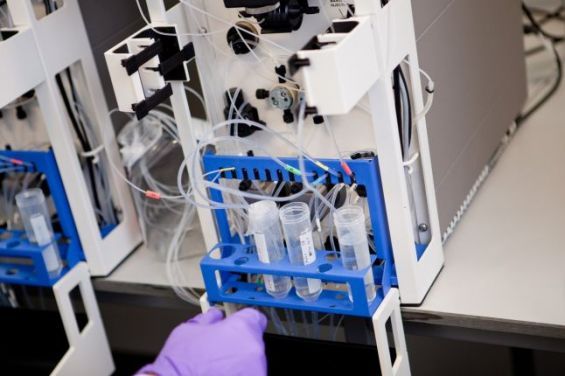In the 1980s, a group of students at the Free University of Brussels were determined to carry out a project using frozen samples of camel blood. They have discovered that the animal’s immune-system proteins might be of a great use in the field of biotechnology, and so, they decide to make their research project work relying on Morocco.
In a Bloomberg article published Monday, Serge Muyldermans, a researcher who helped the group found their company, Ablynx, explained that they had to source camel blood from the North African Kingdom, after the camel they were relying on suddenly disappeared.
«When that animal inexplicably disappeared, a lab worker in Belgium who had ties to the North African country began traveling back and forth, bringing samples from an uncle’s camel», Muydermans told the American financial magazine.
With the Moroccan camel’s blood, the group of Belgian scientists managed to convince the world about their research. Years later, most precisely in 2002, they have created their company, a biopharmaceutical firm engaged in the discovery and development of the Nanobodies. The latter is a single-domain antibody they obtained by immunization of Moroccan camels.
A 4.8 billion bid
With its successful background, the company headquartered in Ghent, Belgium, have agreed to a $4.8 billion bid presented by the French drug maker, Sanofi. The latter managed to overthrow NOVO, a Danish multinational pharmaceutical company headquartered in Bagsværd, Denmark, with production facilities in eight countries, which was also bidding to acquire the Belgian firm, reports Reuters.
Ablynx rejected NOVO’s 2.6 billion Euro offer believing that it was not as promising as Sanofi’s, which has been one of the company’s biggest pharma partners since July 2017. «This nanobody platform is in very safe hands with someone who recognizes the wide applicability of the technology», Edwin Moses, the company's CEO told Bloomberg commenting on Sanofi's bid.
For the record, Ablynx’s Nanobodies are used in molecules for rare blood deseases, conditions including inflammation, respiratory disorders and cancer.





 chargement...
chargement...





 On this great news for morocco pharma industry,you forgot to add a link to ben barka case
On this great news for morocco pharma industry,you forgot to add a link to ben barka case  Have a close look at your yabiladi history log ,it speaks for itself.
you simply hate morocco even when such good news had no political connection.
So,Give us a break and start applying these popular sayings and quotes to yourself.
Have a close look at your yabiladi history log ,it speaks for itself.
you simply hate morocco even when such good news had no political connection.
So,Give us a break and start applying these popular sayings and quotes to yourself.
 Sorry to disapoint you...
Yes it s a 100% camel from morocco and not from mongolia!
Sorry to disapoint you...
Yes it s a 100% camel from morocco and not from mongolia!







